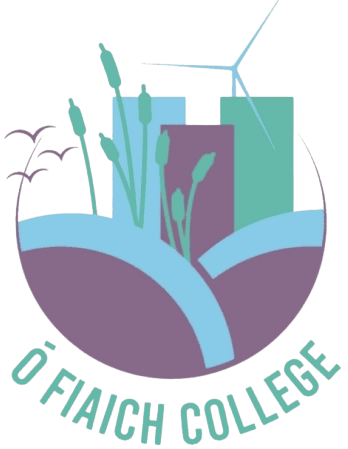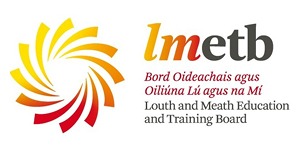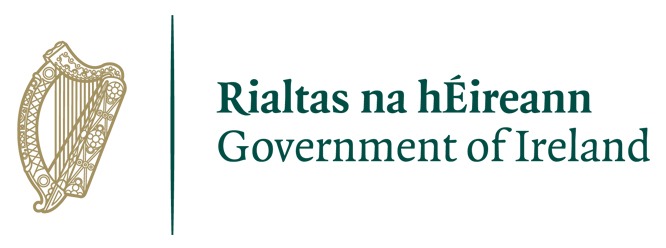English
- Home
- /
- English
What is it?
Transition Year
In Transition Year, the study if English will broaden the students’ understanding of the world through literature, encourage and foster reading and appreciation of arts, to encourage students’ confidence in oral and written expression, to develop skills of critical analysis and will provide a broad and solid foundation for Leaving Certificate course and for life in general
Transition Year English will equip students will the skills to identify features of style within texts, experiment with narrative voice, write a range of short stories, develop and widen their tastes in reading, compare and contrast similarities between texts and their film adaptations, examine characterisation and to experiment with characterisation in their short story writing and create characters and develop a story around these characters.
Leaving Certificate Applied
Students will study English and Communications. This course is designed on the premise that improving communication involves raising students’ awareness about their own use of language and the language of others. This is achieved through the study of language in use in real communicative contexts. Students will examine a variety of texts to include oral, written or visual texts. This course aims to equip students to meet the literacy demands of everyday life, to empower students to communicate effectively, to develop students’ aesthetic appreciation of literature and to encourage students to express themselves creatively.
Leaving Certificate English invites students into rich experiences with language so that they become fluent and thoughtful users of it and more aware of its significance in their lives. It develops a range of literacy and oral skills in a variety of areas, personal, social, and cultural. Students develop a wide range of skills and concepts. These will allow them to interpret and enjoy a range of material so that they become independent learners who can operate independently in the world beyond the school.
Possible future Careers
- Law
- Politics
- Acting
- Writing
- Civil Service
- Film/TV editing
- Copy Editing
- Speech Therapy
- Administration
- Management
- Digital Content Editor
- Teaching
- Marketing
- Journalism
- Broadcasting
- Clerical Work
- Copy Writing
- Classroom Support
- Events Management
- Publishing
- Advertising
- <li”>Archive Work
- Proof reading
- Librarianship
- Digital Marketing
What is it?
English is a core subject in all post-primary schools and is regarded as a compulsory subject for all students. The skills learned in English have an application throughout the curriculum and beyond it into the world of adult life and work. Both the Junior Certificate English and Leaving Certificate syllabus acknowledge the central role played by speaking, listening, reading and writing in the learning and thinking processes.
Where will it lead me?
English is a valuable subject that plays an important role in your academic life and life outside of school. English can open the doors to numerous opportunities and careers. See below.
Who is it for?
English is for everyone!
What will I learn?
Junior Cycle English focuses on the development of language and literacy in and through the three strands: Oral Language, Reading, and Writing. The elements of each of these strands place a focus on communicating, on active engagement with and exploration of a range of texts, and on acquiring and developing an implicit and explicit knowledge of the shape and structures of language. There is a strong focus on the oral dimension of language, including the vital importance of learning through oral language. This makes the English classroom an active space, a place of ‘classroom talk’ where learners explore language and ideas as much through thinking and talking as through listening and writing.
Transition Year
In Transition Year, the study if English will broaden the students’ understanding of the world through literature, encourage and foster reading and appreciation of arts, to encourage students’ confidence in oral and written expression, to develop skills of critical analysis and will provide a broad and solid foundation for Leaving Certificate course and for life in general
Transition Year English will equip students will the skills to identify features of style within texts, experiment with narrative voice, write a range of short stories, develop and widen their tastes in reading, compare and contrast similarities between texts and their film adaptations, examine characterisation and to experiment with characterisation in their short story writing and create characters and develop a story around these characters.
In Transition Year, the study if English will broaden the students’ understanding of the world through literature, encourage and foster reading and appreciation of arts, to encourage students’ confidence in oral and written expression, to develop skills of critical analysis and will provide a broad and solid foundation for Leaving Certificate course and for life in general
Transition Year English will equip students will the skills to identify features of style within texts, experiment with narrative voice, write a range of short stories, develop and widen their tastes in reading, compare and contrast similarities between texts and their film adaptations, examine characterisation and to experiment with characterisation in their short story writing and create characters and develop a story around these characters.
Leaving Certificate Applied
- Law
- Politics
- Acting
- Writing
- Civil Service
- Film/TV editing
- Copy Editing
- Speech Therapy
- Administration
- Management
- Digital Content Editor
- Teaching
- Marketing
- Journalism
- Broadcasting
- Clerical Work
- Copy Writing
- Classroom Support
- Events Management
- Publishing
- Advertising
- <li”>Archive Work
- Proof reading
- Librarianship
- Digital Marketing





